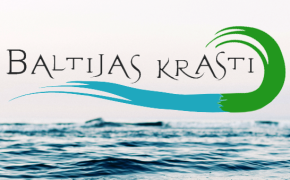A project aimed to implement zero waste practices in local municipalities through engagement of the municipality institutions, businesses and communities.
Currently, less than 30% of waste is recycled in Latvia while the EU goal is to recycle at least 50% of the waste. The circular economy concept has become more popular aiming not to waste the resources, not to pollute the environment and to encourage the reuse of the products and materials produced. However, the circular economy is not the ultimate solution thus the zero waste approach has become more popular and is already implemented in 400 cities in the whole world. Best practices from other cities of the world inspired to apply zero waste principles in Latvian municipalities. The activities of the project were tailored to each of the selected cities, taking into account the relevant changes in waste management regulation as well as the specific interests and specifics of each city.
The objective is to introduce the zero waste city concept in one municipality in Latvia. The project initiative is based on three pillars - Intervention, Education and Behaviour change. The main idea is to first assess the current situation regarding the recycling habits and the current waste management infrastructure in the chosen city and depict what are the current problems and how this could be improved.
Main stakeholders of the project and beneficiaries are the municipality employees, local businesses and organisations participating as well as the local communities of the municipalities. We have cooperated with three Latvian municipalities – Cēsis, Salaspils, Līvāni.
Resources needed
Funding was obtained from the Coca-Cola Foundation. It is managed in cooperation with environmental organisation NGO Green Liberty and public affairs agency VA Government. A strong cooperation with municipalities was established, engaging municipality employees, local businesses and communities.
Evidence of success
All 3 municipalities made changes in their strategic documents, to include zero waste principles or additional focus on sustainability.
9 financial grants for civic ideas aimed to implement zero waste principles and educate society on the concept were given.
The Zero Waste Days activities in Cēsis attracted more than 300 participants.
In Līvāni textile sorting activity 60 containers of textile were collected and given to animal shelters, donated to families or recycled.
Difficulties encountered
An individual approach is required for each municipality to reach results. Challenges arise when the municipality does not take an active role in the project development as the initiative requires involvement from the relevant stakeholders.
Potential for learning or transfer
The practice implemented is in line with similar global initiatives aiming to develop zero waste principles in the municipalities. The key to success for the project is that the key team works as the third party bringing together the municipality, local businesses and communities. The third-party look allows making connections among the stakeholders that might be overlooked otherwise. Creating cooperation between stakeholders and cultivating new relationships and initiatives allows the project to live after the initial project lifetime. Also, adding new municipalities to the network allows them to share experiences and challenges, learning from the best practices. Municipalities are eager to share their experience, encouraging other cities to take action towards zero waste.
There are different ways where to begin and how to have a wider impact and it is important to do parallel things - awareness rising, changes in the strategic documents and practical initiatives at the local level.
Tags: Administration, Circular economy, Citizen engagement, Citizens, City, Community, Event, Legislation, Local, Sustainable, Waste








